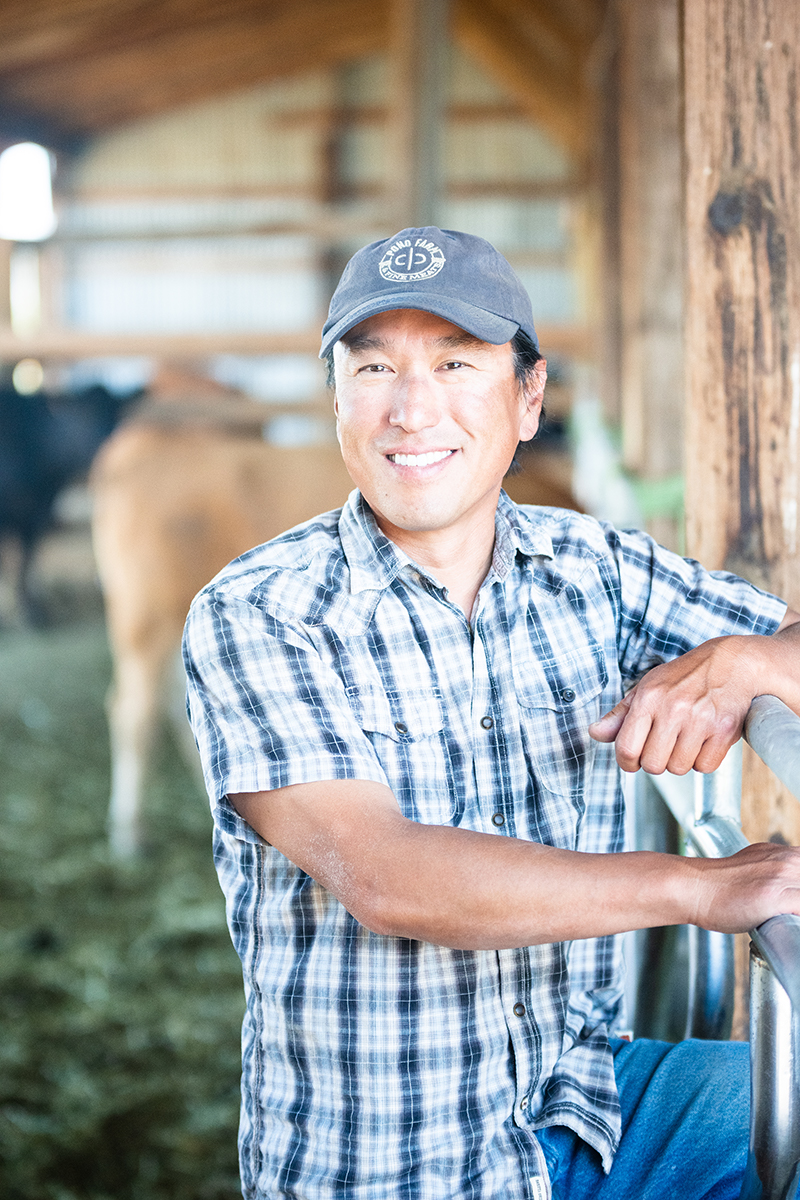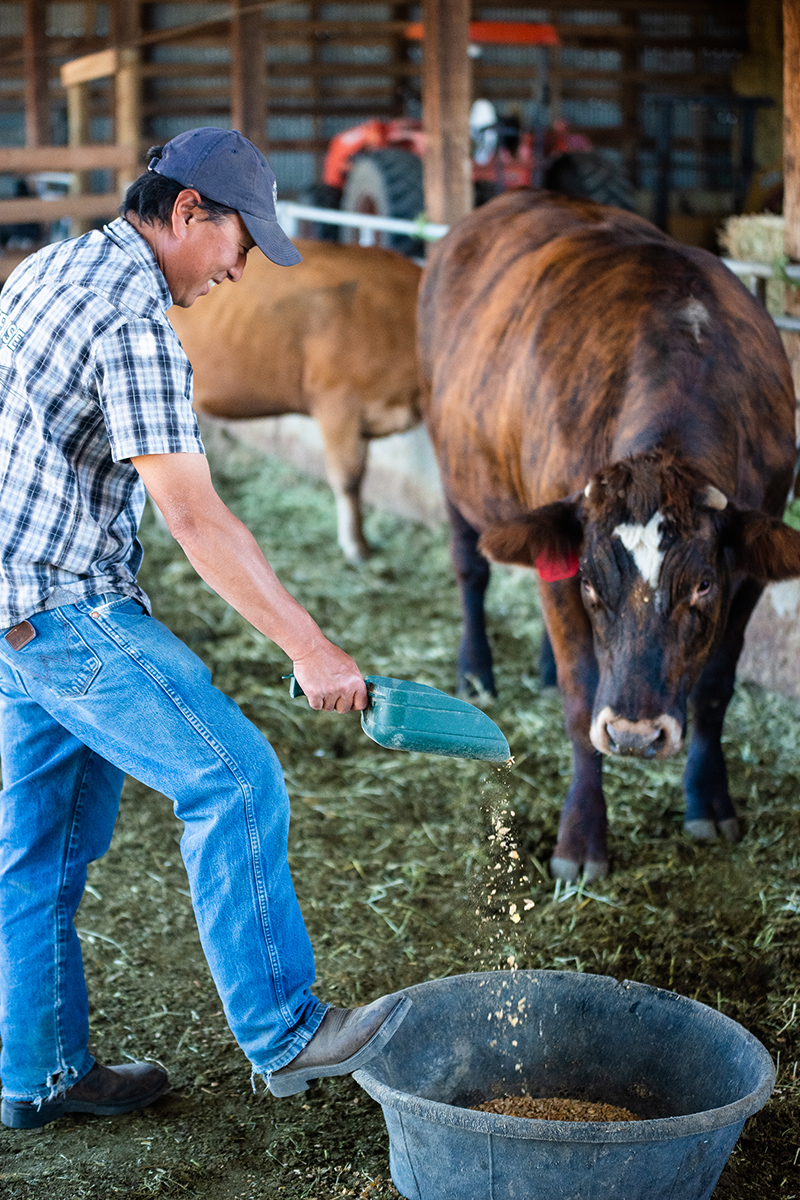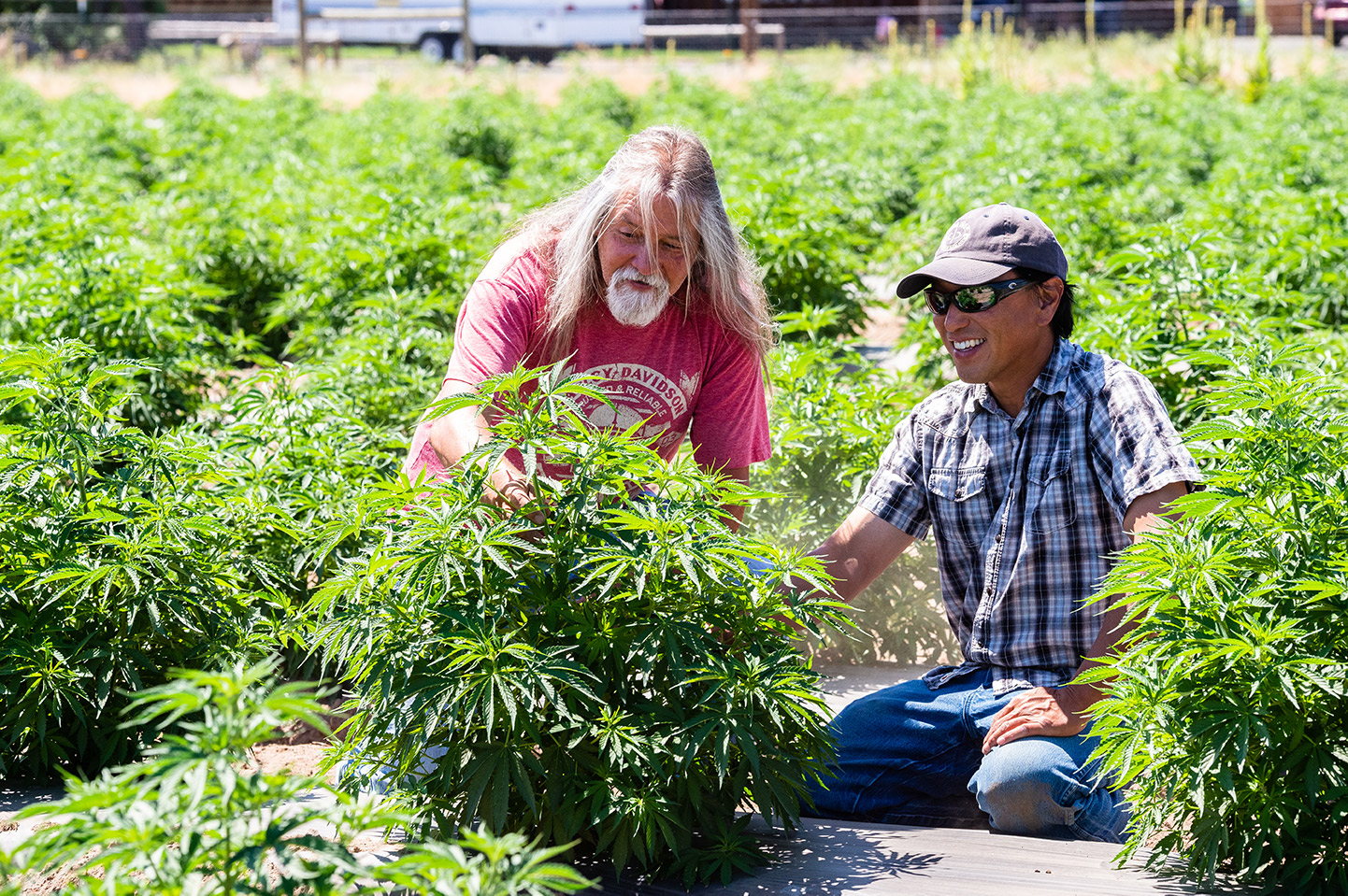When he was 11 years old, Shin Nakato started working as a dishwasher in his family’s restaurants. Learning from his grandmother, who opened Atlanta’s first Japanese eatery, he developed a sharp eye for quality.
“Over the years, the standard of food coming into the kitchen was noticeably worse,” Nakato said. “Everything was changing because of the commercialization of production; things were not going in a good direction.”

To meet this challenge, Nakato became a third-generation restaurateur and first-generation farmer. Launching Pono Farm in Culver, Oregon, as well as a butcher shop in Bend and a Japanese soul food restaurant in Portland, he built a team of quality control nerds.
“We started looking into beef and how it was produced,” said Nakato. “We wanted to figure out why the quality of the food was deteriorating and how we could improve it.”
His solution was getting into farming — not something he would recommend for everyone — to create a map showing how soil health in a pasture led to perfectly marbled fat in a cut of Waygu steak.

The strategy worked for a while, until tariffs and other factors put a crimp in his operation. Pono Farm downsized from 450 head of cattle, 350 hogs and 400 egg-laying chickens. It also closed the butcher shop and restaurant. Meanwhile, the farm started strip tilling hemp into its pastures, hoping to break noxious weed cycles and leverage the manure-enriched soil for cannabidiol (CBD) production.
“I like to tinker,” said Nakato. “There is always so much worry about weeds, so we tried to embrace it and do something different while producing a new crop.”
Nakato continued to experiment on behalf of a hemp seed CBD group, using culled male plants — only females are grown to maturity for harvest — as feed for 100 hogs for about four months. The 95 percent hemp diet resulted in happy hogs, delicious pork and reduced crop waste to near zero. They even cured pork loins using hemp flower to create an earthy, floral aged product.

Experimentation also means a lot of failure. “A couple of seasons ago, we grew about nine different hemp CBD strains as a test,” said Nakato. “Six of those failed the first frost in our climate.” As the market for hemp-based CBD products takes shape, Nakato is pleased that the farm’s production loop for soil, hemp and livestock appears to be hitting a sweet spot.
Pono Farm’s future is exciting, shifting from year-round livestock production to an educational membership cooperative. “The future for us is more consultation and less production as we get older,” said Nakato. From on-farm classes to expanding no-till to more hogs raised on hemp, he is committed to tinkering with every working part in the farm’s systems. “Our mission is to help the next generation and invite others to understand what we have experienced, learned and are still working on.”




















